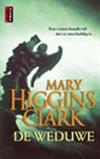
Villette
1 journaler for this copy...
I was absorbed by Villette, a lesser known Brontë novel. It was published in 1853, only six years after Jane Eyre, without ever coming close to the popularity of Jane Eyre. Anyway, it's hard to say more without SPOILERS, so you may prefer to skip the rest!
Villette is the fictional memoir of an English language teacher at a school for girls and young ladies, daughters of both nobility and bourgeoisie. CB draws heavily on her own experiences as a teacher in Brussels (which "Villette" may safely be taken to represent).
Lucy Snowe is a young Englishwoman who suddenly finds herself alone in the world with only fifty pounds to her name. She decides to make a new life in a foreign land. In Victorian times, merely going to Belgium (or Labassecour, as it appears in the novel) would have been an adventure. Many would also have seen the decision of a young woman to travel abroad alone as reckless, perhaps even immoral. Today it speaks more of CB's and Lucy's courage, independence of mind, and strength of character in refusing the common lot of women in that era: to be nothing more than the wives and servants of men. The novel is a fine portrayal of the lonely struggle to live with no other resources but one's own wits.
In Villette, Lucy meets the formidable Madame Beck, directress of the girls school - a truly great fictional character. Mme Beck is ruthless in assessing a person's worth to herself, and finds room for Lucy as a teacher in her establishment. In an odd way Mme Beck's coolly calculating nature is reassuring to Lucy, who maintains a clear sense of her own value to the school. Lucy is not very happy living with so little emotional support in her life, but appreciates the stability of her existence.
After a time, Lucy chances to meet Dr John Bretton and Polly Home, friends in her earlier life in England. At that time, Polly was a small child, and CB's vivid cameo of her as a child is a literary tour de force. Lucy's acquaintance with these persons of higher social standing raises her stock with Mme Beck. Not so with the appalling professor Paul Emanuel. A devout French-speaking Catholic, he is bullying, overbearing, pompous, self-centred, patronising, manipulative, and grossly insulting, treating women as scarcely human. In return, Lucy treats him with cool disdain.
By contrast, Lucy's affection for handsome, kind, decent Dr John deepens. He starts writing to her and very soon the mail delivery becomes the centre of her life. Uncharacteristically, she does not examine this affection. Does she hope that one day she and John will marry, or does she fear that he will reject her because of her inferior social status? Lucy does not say. Perhaps it was felt unseemly in those days for a woman to take any initiative in affairs of the heart.
As things turn out, John's interest in Lucy cools, and eventually he declares his love for the by now 18-year-old beauty, Paulina (Polly). Lucy takes this development in her stride, even expressing pleasure at the match. As for Lucy's own love life, the tale takes a (for me) wholly unexpected turn: Lucy and M. Paul have all this time had the hots for each other. (CB didn't exactly say it like that, of course!)
I'm still puzzling over this turn of events. Perhaps a female reader can intuit Lucy's sexual interest in M. Paul; I simply took her obvious contempt for the man at face value. And he deserved it. Or was grossly chauvinistic behaviour by men so much the norm that Lucy could hardly take exception to it? A very strange dénouement. Lucy accepts M.Paul's funding to set her up as directress of a pensionnat of her own. Meanwhile, M.Paul is sailing away to Guadeloupe for three years on essential business, but on his return... in fact, this is the real dénouement: in the tradition of Victorian Gothic melodrama, M. Paul drowns in a shipwreck on his return voyage, leaving Lucy's love unrequited.
Villette has its faults and longueurs, but CB's portrayal of her central characters is of very rich quality, leaving the reader much to ponder. It was a deeply satisfying read.
Villette is the fictional memoir of an English language teacher at a school for girls and young ladies, daughters of both nobility and bourgeoisie. CB draws heavily on her own experiences as a teacher in Brussels (which "Villette" may safely be taken to represent).
Lucy Snowe is a young Englishwoman who suddenly finds herself alone in the world with only fifty pounds to her name. She decides to make a new life in a foreign land. In Victorian times, merely going to Belgium (or Labassecour, as it appears in the novel) would have been an adventure. Many would also have seen the decision of a young woman to travel abroad alone as reckless, perhaps even immoral. Today it speaks more of CB's and Lucy's courage, independence of mind, and strength of character in refusing the common lot of women in that era: to be nothing more than the wives and servants of men. The novel is a fine portrayal of the lonely struggle to live with no other resources but one's own wits.
In Villette, Lucy meets the formidable Madame Beck, directress of the girls school - a truly great fictional character. Mme Beck is ruthless in assessing a person's worth to herself, and finds room for Lucy as a teacher in her establishment. In an odd way Mme Beck's coolly calculating nature is reassuring to Lucy, who maintains a clear sense of her own value to the school. Lucy is not very happy living with so little emotional support in her life, but appreciates the stability of her existence.
After a time, Lucy chances to meet Dr John Bretton and Polly Home, friends in her earlier life in England. At that time, Polly was a small child, and CB's vivid cameo of her as a child is a literary tour de force. Lucy's acquaintance with these persons of higher social standing raises her stock with Mme Beck. Not so with the appalling professor Paul Emanuel. A devout French-speaking Catholic, he is bullying, overbearing, pompous, self-centred, patronising, manipulative, and grossly insulting, treating women as scarcely human. In return, Lucy treats him with cool disdain.
By contrast, Lucy's affection for handsome, kind, decent Dr John deepens. He starts writing to her and very soon the mail delivery becomes the centre of her life. Uncharacteristically, she does not examine this affection. Does she hope that one day she and John will marry, or does she fear that he will reject her because of her inferior social status? Lucy does not say. Perhaps it was felt unseemly in those days for a woman to take any initiative in affairs of the heart.
As things turn out, John's interest in Lucy cools, and eventually he declares his love for the by now 18-year-old beauty, Paulina (Polly). Lucy takes this development in her stride, even expressing pleasure at the match. As for Lucy's own love life, the tale takes a (for me) wholly unexpected turn: Lucy and M. Paul have all this time had the hots for each other. (CB didn't exactly say it like that, of course!)
I'm still puzzling over this turn of events. Perhaps a female reader can intuit Lucy's sexual interest in M. Paul; I simply took her obvious contempt for the man at face value. And he deserved it. Or was grossly chauvinistic behaviour by men so much the norm that Lucy could hardly take exception to it? A very strange dénouement. Lucy accepts M.Paul's funding to set her up as directress of a pensionnat of her own. Meanwhile, M.Paul is sailing away to Guadeloupe for three years on essential business, but on his return... in fact, this is the real dénouement: in the tradition of Victorian Gothic melodrama, M. Paul drowns in a shipwreck on his return voyage, leaving Lucy's love unrequited.
Villette has its faults and longueurs, but CB's portrayal of her central characters is of very rich quality, leaving the reader much to ponder. It was a deeply satisfying read.
Journal Entry 2 by  miketroll
miketroll at Pen and Wig pub OBCZ in Cardiff, Wales United Kingdom on Saturday, July 25, 2009
at Pen and Wig pub OBCZ in Cardiff, Wales United Kingdom on Saturday, July 25, 2009
 miketroll
miketroll at Pen and Wig pub OBCZ in Cardiff, Wales United Kingdom on Saturday, July 25, 2009
at Pen and Wig pub OBCZ in Cardiff, Wales United Kingdom on Saturday, July 25, 2009
Released 14 yrs ago (7/25/2009 UTC) at Pen and Wig pub OBCZ in Cardiff, Wales United Kingdom
WILD RELEASE NOTES:
WILD RELEASE NOTES:
At monthly meetup.
At monthly meetup.
 This Book is Currently in the Wild!
This Book is Currently in the Wild!














